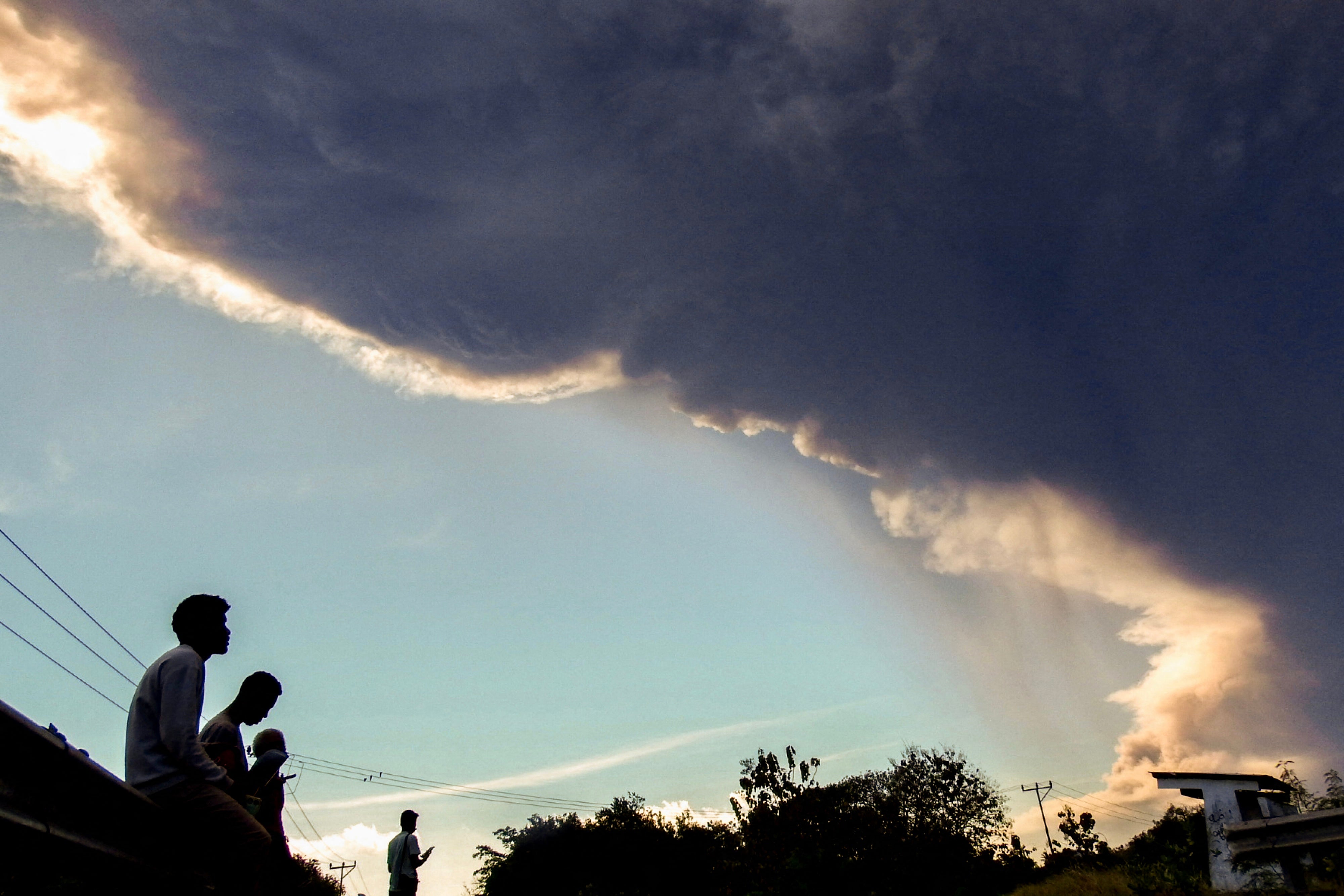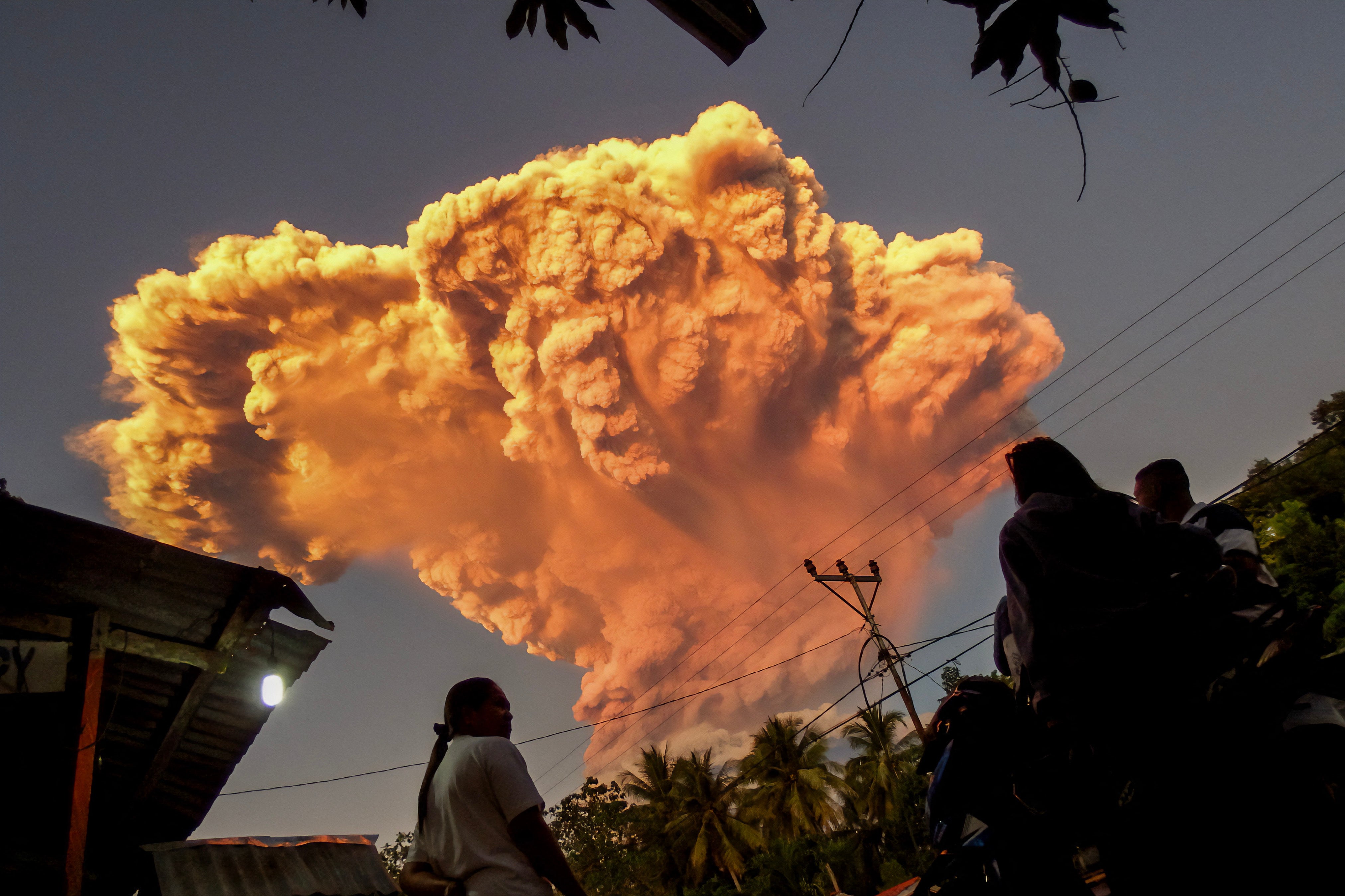Mount Lewotobi Laki Laki in eastern Indonesia erupted on Monday, propelling a massive column of volcanic ash 18km (11 miles) into the sky and blanketing surrounding villages in debris.
Several international flights from Australia to Bali have been cancelled, and local authorities have warned of potential lahar flows – destructive volcanic mudslides – if heavy rains occur.
The 1,584m volcano, situated on Flores island, is part of a twin-peaked formation with the taller and less active Mount Lewotobi Perempuan. The eruption occurred at 11.05am local time, according to Indonesia’s volcanology agency, which noted that clouds of searing gas cascaded down the slopes during the blast.
There were no immediate reports of casualties or structural damage. Officials continue to monitor the area, maintaining an 8km exclusion zone around the crater. Dozens of residents from nearby villages have been evacuated as a precaution.
Australian airlines including Qantas, its low cost carrier JetStar, and Virgin Australia said that they have canceled several flights between Australia and Bali following the eruption.
Monday’s eruption is the latest in a series of violent outbursts from Mount Lewotobi Laki Laki. The volcano previously erupted in June, May, March and November.

The 17 June eruption sent ash plumes 11km into the atmosphere, visible from space, and triggered widespread flight cancellations from Bali’s Denpasar International Airport.
Air traffic was also severely disrupted, with numerous flights to Australia, China, India, Malaysia, New Zealand and Singapore grounded or delayed.
Ash was reported as far as 93km away, according to Weatherzone, prompting nationwide alerts.
In November, multiple eruptions killed nine people, injured dozens, and forced thousands to flee.
Indonesia’s volcano monitoring agency had already raised the alert level for Lewotobi Laki Laki to its highest in June, following increased volcanic activity.

The frequency of tremors surged from an average of eight to ten daily to 50 in just two hours, reported 9 News earlier last month. Authorities responded by doubling the safety perimeter to 7km, later expanding it to 8km following the eruptions in June.
Volcanic ash, composed of fine particles of rock, crystal and glass, poses significant danger to aircraft. When inhaled by jet engines, it can melt and resolidify inside, potentially causing engine failure and serious damage to the aircraft’s structure.

Indonesia, a nation of more than 270 million people spread across an archipelago, sits along the Pacific “Ring of Fire” – a zone of intense seismic activity. The country is home to 120 active volcanoes and frequently experiences earthquakes, eruptions and tsunamis.
India’s pollution crisis found linked to rising pre-term births and low birth weight
France says China used embassies to undermine sales of French fighter jet
Delhi government withdraws plan to scrap old cars after backlash
Dalai Lama marks 90th birthday amid rising tensions over succession
Couple travels across country for cable car ride – only to find out it was AI
Suspended PM among Thailand’s new cabinet members to take oath of office







